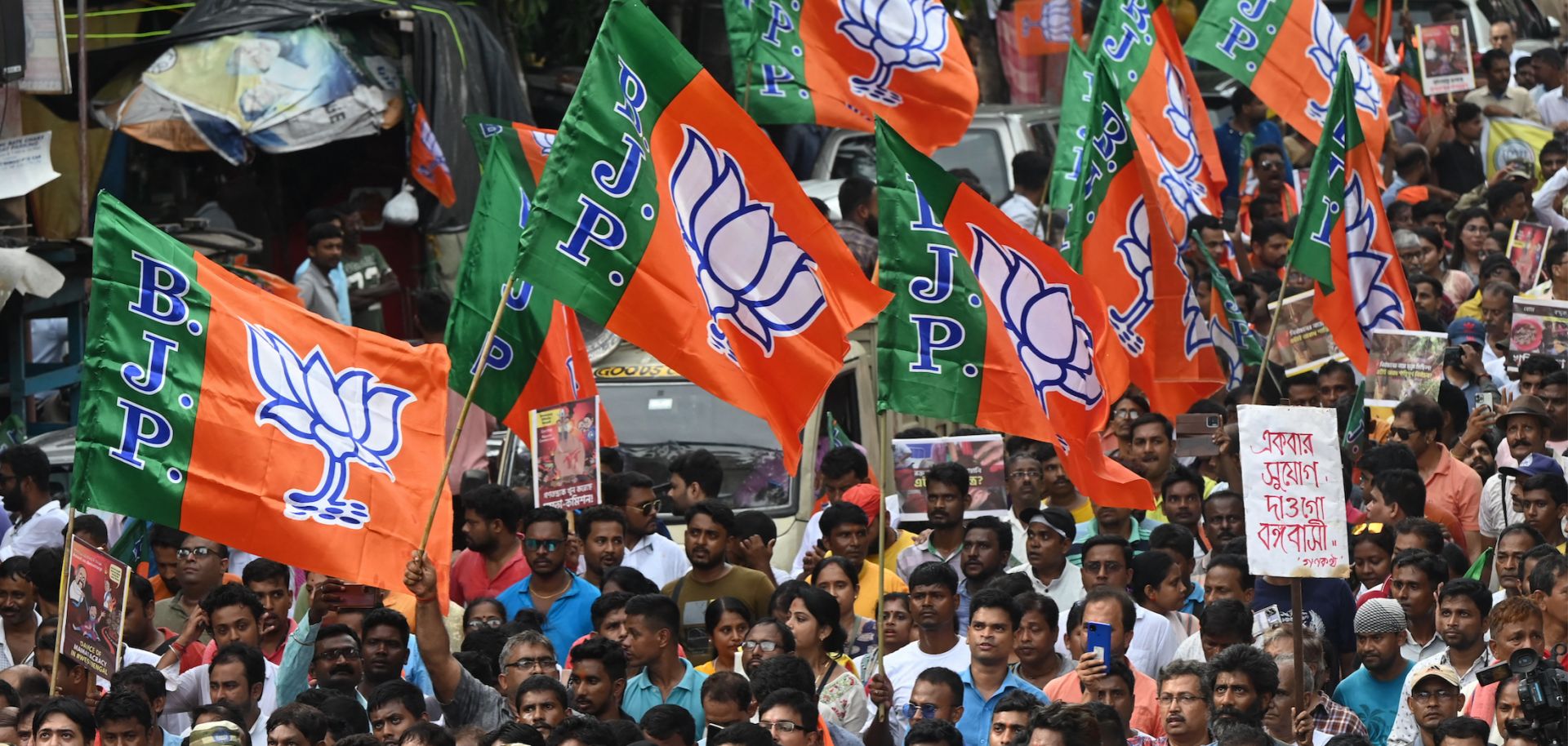
By: Hafsa Qadri 25 November 2023
Hindutva, a political ideology that promotes the idea of Hindu supremacy and envisions India as a Hindu Rashtra, has become a central element of Indian politics, especially with the rise of the Bhartiya Janata Party (BJP) and the Rashtriya Swayamsevak Sangh (RSS). It is undeniable that the BJP has time and again attempted to create a polarized environment within the society on the basis of this very Hindutva ideology to secure votes during elections from the Hindu majority. Their divisive narrative often revolves around empathizing with Hindus over perceived grievances, portraying them as victims of historical injustices, which gives rise to animosity between Hindu and the Muslim population that ultimately leads to communal violence. These communal violence incidents are then exploited by the BJP to leverage electoral advantage.
The States governed by the BJP have witnessed a higher number of communal incidents compared to other states, which raises questions about the party’s role in fueling tensions. The state of Gujarat during Narendra Modi’s tenure as Chief Minister serves as a case in point. The 2002 riots that erupted following the Godhra Train incident led to a significant deepening of the Hindu-Muslim divide. Accusations were made that the state government allowed Hindus to seek revenge, and the police were allegedly instructed not to intervene. What is even more concerning is the exploitation of these riots for electoral gain. The BJP distributed posters that labeled Muslims as “terrorists,” using this divisive narrative to secure the majority of votes in constituencies affected by the riots. The fact that the Chief Minister was later acquitted by the Indian Supreme Court seems to have provided the BJP with a mandate to employ the extremist Hindutva ideology for political advantage.
This pattern of using communal tensions for electoral benefit is not limited to Gujarat. Rajasthan, a state without a history of such incidents, saw a surge in communal violence incidents. In 2008, the number of such incidents increased from 39 to 52, and the BJP emerged victorious in elections the very same year. A similar situation occurred before the 2018 elections, with a noticeable increase in the Hindu-Muslim divide and a corresponding rise in communal tensions. While the Congress party won those elections, the BJP continued to use the “divide and rule” strategy to gain votes. Today, as the 2023 Rajasthan Vidhan Sabha elections are approaching, BJP campaigns are once again over-fixated on communal violence incidents such as the Karauli incident, the Bhilwara communal violence incident, and the murder of a Hindu tailor named Kanhaiya. This continued exploitation of communal tensions suggests a pattern of using divisive narratives to gain electoral advantages.
Another troubling instance is the Manipur incident, where a dispute between the Meitei and Christian Kuki-ZO communities escalated when the government planned to recognize Meitei group as a Scheduled Tribe(ST) which will grant them quotas of government jobs and college admissions, fearing that this plan would reduce the entitlements of Kuki-ZO which are already enjoying this status started protesting against this plan. Soon the rallies were turned into violence, reports suggest that atleast 150 people have been killed. The Human Rights Watch Report accused the BJP led government in the state facilitated the conflict for its electoral gains. This accusation can be supported by the evidence that the PM Modi remained silent on this issue for two months, and when he spoke about the incident he only expressed pain and anger but did not took any action on the issue. Recently, this issue was also underscored in a speech by a key RSS member Bhagawat, indicating that the BJP might use this incident to secure more votes, particularly in a predominantly Hindu state. Likewise, in the Nuh district of Haryana, a Hindu procession passing through a predominantly Muslim area resulted in a confrontation and loss of life. In retaliation, an Imam of a mosque in Gurugram was killed, and Muslim-owned shops were destroyed. The Muslim community felt threatened and fearful, leading many to flee the city.
In conclusion, the increase in communal violence incidents across India since the BJP came to power has intensified animosities between religious communities. This trend underscores the party’s consistent use of Hindutva as a central agenda to incite communal violence and exploit the Hindu-Muslim divide, all with the aim of gaining a significant advantage in elections by securing the Hindu population’s vote. Notably, this pattern of increasing communal violence leading up to elections is a recurring strategy in their electoral campaigns. With the 2024 Lok Sabha elections on the horizon, it remains to be seen whether this tactic will once again prove successful in shaping the political landscape.
